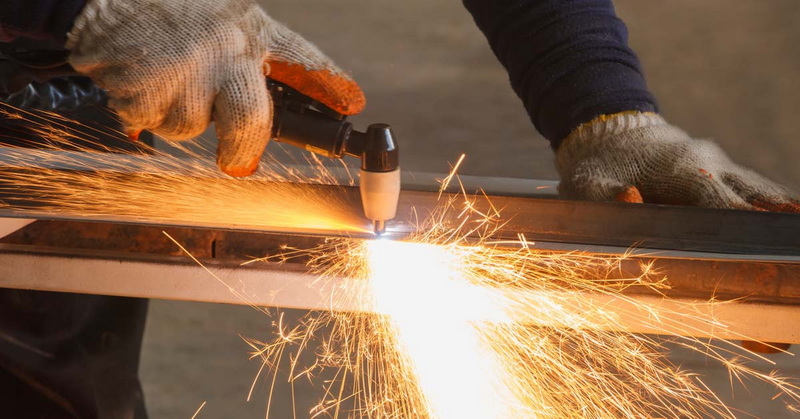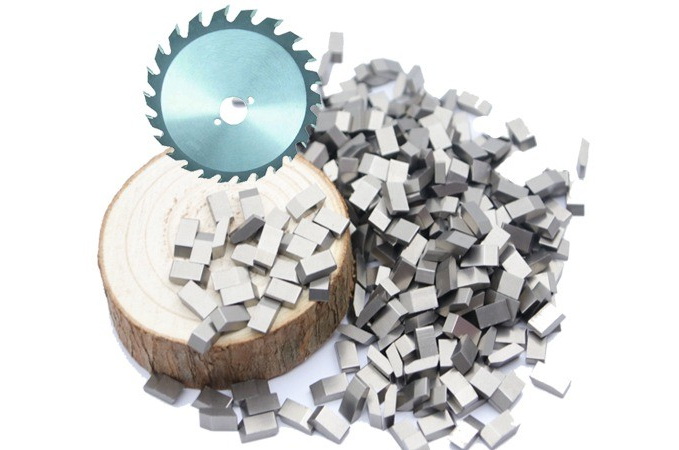Content Menu
● Introduction to Tungsten Carbide
>> Composition of Tungsten Carbide
● Corrosion Resistance of Tungsten Carbide
>> Factors Affecting Corrosion Resistance
● Applications of Tungsten Carbide
● Advanced Manufacturing Techniques for Tungsten Carbide
>> 3D Printing of Tungsten Carbide
>> Advanced Sintering Techniques
● Comparison with Other Materials
>> Comparison Table
● Case Studies: Tungsten Carbide in Harsh Environments
>> Oil and Gas Industry
>> Aerospace Industry
● Future Trends in Tungsten Carbide Technology
>> Nanotechnology Integration
● Environmental Impact and Sustainability
>> Recycling Initiatives
● Enhancing Corrosion Resistance
>> Advanced Corrosion-Resistant Grades
● Conclusion
● FAQ
>> 1. Does Tungsten Carbide Rust?
>> 2. How Does Cobalt Affect Corrosion Resistance?
>> 3. Can Tungsten Carbide Be Used in Acidic Environments?
>> 4. How Can Corrosion Resistance Be Improved?
>> 5. What Are the Applications of Corrosion-Resistant Tungsten Carbide?
● Citations:
Tungsten carbide is renowned for its exceptional hardness and durability, making it a popular choice for various industrial applications, including cutting tools, wear parts, and even jewelry. One of the key questions surrounding tungsten carbide is whether it is rust-proof. In this article, we will delve into the properties of tungsten carbide, explore its resistance to corrosion, and discuss its applications.

Introduction to Tungsten Carbide
Tungsten carbide is a chemical compound composed of tungsten and carbon atoms, often combined with a binder like cobalt to form cemented carbide. This material is known for its high hardness, approaching that of diamonds, and its excellent wear resistance. These properties make it ideal for use in harsh environments where other materials might fail.
Composition of Tungsten Carbide
Tungsten carbide is typically made by sintering tungsten carbide powder with a binder, such as cobalt. The cobalt acts as a "cement" that holds the tungsten carbide grains together, providing strength and toughness to the material. The composition of tungsten carbide can vary depending on the application, with different binder materials and additives used to enhance specific properties.
Tungsten Carbide Composition:
- Tungsten Carbide (WC): Provides hardness and wear resistance.
- Cobalt (Co): Acts as a binder, enhancing strength and toughness.
- Optional Additives: Nickel, chromium, or other metals can be added to improve corrosion resistance.
Corrosion Resistance of Tungsten Carbide
Tungsten carbide is generally resistant to corrosion due to its stable chemical composition. However, the binder material, typically cobalt, can be susceptible to corrosion under certain conditions. Cobalt can leach out when exposed to strong acids, leading to a loss of structural integrity in the tungsten carbide.
Factors Affecting Corrosion Resistance
- pH Levels: Tungsten carbide with cobalt is resistant down to pH 7 but may corrode in more acidic environments.
- Temperature: Higher temperatures can increase the rate of corrosion.
- Binder Material: Using nickel instead of cobalt can improve corrosion resistance.
Applications of Tungsten Carbide
Given its hardness and corrosion resistance, tungsten carbide is used in a wide range of applications:
- Cutting Tools: Tungsten carbide tools are used for machining and cutting due to their high wear resistance.
- Wear Parts: Components like nozzles and choke valves benefit from tungsten carbide's durability.
- Jewelry: Tungsten carbide rings are popular for their scratch resistance and durability.
Advanced Manufacturing Techniques for Tungsten Carbide
Recent advancements in manufacturing techniques have improved the quality and consistency of tungsten carbide products. Techniques such as 3D printing and advanced sintering methods allow for more precise control over the microstructure of the material, enhancing its properties.
3D Printing of Tungsten Carbide
3D printing enables the creation of complex geometries that cannot be achieved through traditional manufacturing methods. This capability is particularly useful for producing customized wear parts and cutting tools with optimized performance.
Advanced Sintering Techniques
Modern sintering techniques, such as hot isostatic pressing (HIP), ensure uniform density and reduce porosity in the final product. This results in improved mechanical properties and increased reliability in harsh environments.

Comparison with Other Materials
Tungsten carbide is often compared to other hard materials like titanium carbide and silicon carbide in terms of corrosion resistance. While each material has its strengths, tungsten carbide stands out for its exceptional hardness and wear resistance.
Comparison Table
| Material | Hardness (HV) | Corrosion Resistance |
| Tungsten Carbide | 1500-2000 | Good, except in strong acids |
| Titanium Carbide | 1800-2000 | Fair, susceptible to oxidation |
| Silicon Carbide | 2000-3000 | Excellent, highly resistant |
Case Studies: Tungsten Carbide in Harsh Environments
Tungsten carbide is frequently used in environments where other materials would quickly degrade. For example, in the oil and gas industry, tungsten carbide components are used in drilling tools due to their ability to withstand high pressures and corrosive fluids.
Oil and Gas Industry
In this sector, tungsten carbide is used for drill bits and other wear parts. Its durability ensures that equipment can operate effectively even in the presence of corrosive substances like hydrogen sulfide.
Aerospace Industry
Tungsten carbide is also used in aerospace for components that require high wear resistance and strength, such as rocket nozzles. Its ability to withstand extreme temperatures and corrosive environments makes it an ideal choice.
Future Trends in Tungsten Carbide Technology
As technology advances, there is a growing focus on developing new grades of tungsten carbide with enhanced properties. This includes improving corrosion resistance and exploring new applications in emerging industries like renewable energy.
Nanotechnology Integration
Research into incorporating nanoparticles into tungsten carbide aims to further enhance its mechanical properties and corrosion resistance. This could lead to new applications in fields requiring ultra-high performance materials.
Environmental Impact and Sustainability
The production of tungsten carbide has environmental implications, primarily related to the mining of tungsten and the energy-intensive manufacturing process. Efforts are being made to improve sustainability through recycling and more efficient production methods.
Recycling Initiatives
Recycling tungsten carbide products at the end of their life cycle can significantly reduce waste and conserve resources. This approach also helps minimize the environmental impact associated with mining and processing raw materials.
Enhancing Corrosion Resistance
To improve the corrosion resistance of tungsten carbide, manufacturers often use alternative binders or additives. For example, substituting cobalt with nickel or adding chromium can enhance resistance to acidic environments.
Advanced Corrosion-Resistant Grades
Companies like Kennametal have developed proprietary blends that combine cobalt, nickel, and chromium for superior corrosion resistance. These grades are particularly useful in applications like oil and gas, where components are exposed to harsh conditions.
Conclusion
Tungsten carbide is highly resistant to rust and corrosion, making it an ideal material for demanding applications. While it is not completely impervious to all forms of corrosion, especially in acidic environments, its overall durability ensures it remains a top choice for many industries.

FAQ
1. Does Tungsten Carbide Rust?
Tungsten carbide does not rust in the traditional sense, as rust refers specifically to the corrosion of iron and its alloys. However, it can corrode under certain conditions, particularly when the binder material is exposed to strong acids.
2. How Does Cobalt Affect Corrosion Resistance?
Cobalt, commonly used as a binder in tungsten carbide, can leach out when exposed to corrosive agents, reducing the material's structural integrity. This process is known as cobalt "leaching."
3. Can Tungsten Carbide Be Used in Acidic Environments?
While tungsten carbide has good corrosion resistance, it is not suitable for highly acidic environments. In such conditions, the cobalt binder can deteriorate rapidly.
4. How Can Corrosion Resistance Be Improved?
Corrosion resistance can be enhanced by using alternative binders like nickel or adding metals such as chromium to the composition. These modifications help protect the material in more corrosive conditions.
5. What Are the Applications of Corrosion-Resistant Tungsten Carbide?
Corrosion-resistant tungsten carbide grades are used in applications requiring both wear resistance and corrosion protection, such as in the oil and gas industry, power generation, and other demanding environments.
Citations:
[1] https://www.boyiprototyping.com/materials-guide/does-tungsten-rust/
[2] https://www.jlsmoldparts.com/talking-corrosion-resistance-tungsten-carbide-grades/
[3] https://www.hyperionmt.com/en/products/Wear-Parts/corrosion-resistant-carbide/
[4] https://en.wikipedia.org/wiki/Tungsten_carbide
[5] https://kdmfab.com/does-tungsten-rust/
[6] https://www.linkedin.com/pulse/tungsten-carbide-rust-shijin-lei
[7] https://www.metal-am.com/kennametal-offers-its-most-corrosion-resistant-tungsten-carbide-grade-for-am/
[8] https://www.ipsceramics.com/technical-ceramics/tungsten-carbide/
[9] https://www.linkedin.com/pulse/corrosion-resistance-tungsten-carbide-shijin-lei
[10] https://www.hyperionmt.com/en/Resources/materials/cemented-carbide/corrosion-resistance/
[11] https://www.zccfcarbide.com/Products/corrosionr.html
[12] https://htscoatings.com/blogs/our-craft-our-culture/three-tungsten-carbide-thermal-spray-coatings-and-their-uses
[13] https://media.licdn.com/dms/image/v2/D5612AQHD4LAfU2nX7w/article-cover_image-shrink_720_1280/article-cover_image-shrink_720_1280/0/1678151036530?e=2147483647&v=beta&t=p_YKk8rJOdbyTJ5QOQms_7YKwd2-N9BW5iqa0-Iu3tU&sa=X&ved=2ahUKEwjjpIuz3b2MAxVfh68BHdAnEX8Q_B16BAgHEAI
[14] https://www.reddit.com/r/advancedGunpla/comments/1epph1j/are_all_tungsten_tools_rust_proof/
[15] https://www.tungstenringsco.com/blog/2021/01/will-my-tungsten-wedding-ring-rust-tarnish-or-oxidize/
[16] https://www.yatechmaterials.com/en/technology/what-is-corrosion-resistant-tungsten-carbide/
[17] https://diatechusa.com/blog/tungsten-carbide-steel-pliers/
[18] https://stock.adobe.com/search?k=tungsten+carbide
[19] https://www.istockphoto.com/photos/tungsten-carbide
[20] https://www.gettyimages.in/photos/tungsten-carbide
[21] https://www.shutterstock.com/search/tungsten
[22] https://www.shutterstock.com/search/tungsten-rings
[23] https://stock.adobe.com/search?k=carbide
[24] https://materialsperformance.com/articles/coating-linings/2017/12/nanostructured-tungsten-carbide-coatings-protect-against-corrosion
[25] https://zoncohn.en.made-in-china.com/product/VJkRihgPZZcj/China-High-Corrosion-Resistance-OEM-Tungsten-Carbide-Custom-Raw-Material-Valve-Trim.html
[26] https://www.gettyimages.in/photos/tungsten
[27] https://sunrisecarbide.en.made-in-china.com/product/rEhpzZXBCuUj/China-Corrosion-Resistant-Tungsten-Carbide-Bushing-for-Petroleum-Industry.html
[28] https://cen.acs.org/materials/Chemistry-Pictures-Tungsten-carbide-slice/103/web/2025/02
[29] https://www.istockphoto.com/photos/tungsten-carbide-drill-bits
[30] https://www.industrialplating.com/materials/tungsten-carbide-coatings
















